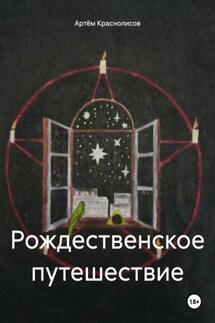Unwanted child - страница 12
The little boy got off his chair and with slow steps made his way to the centre of the circle, patting the glowing section. Donova repeated: ‘Tell me your name.’ The boy, merrily shaking his head from side to side, reached the centre of the circle and after a little stomping in one place said loudly and clearly, ‘Derek. My name is Derek!’
The pupil, with all his seriousness, looked at the teacher, waiting for her to praise him for his accomplished task. She nodded in response, clapped her hands and said: ‘Well done. Nice to meet you Derek. You can go back to your seat.’
The boy stood in the centre for a while longer, enjoying the attention and the sense of accomplishment, and with the same leisurely steps he reached his chair and then sat on it. So each of the kids introduced themselves in turn, stepping out into the circle. The one who was less concentrated and comprehensible Mrs Donova took him to the centre by the hand and repeated her request several times. Finally, it was Theodore's turn. His sector lit up green and everyone stared at him.
Ted understood perfectly well what he was required to do, so based on the example of the previous kids he leisurely went to the centre of the circle and said his name. After that he remained standing in the same place, scrutinising those present. Throwing a glance outside the circle, he noticed the parents of his classmates watching their every move with awe. Looking at one and the other, he tried to spot Lars in the crowd of people he didn't know, but he never found him.
At the age of three, children cannot yet analyse their parents' actions, build a logical chain and conclude whether they are well taken care of or not. They do not know how to take offence over the long term, as their life now consists of momentary emotions. For example, at the moment he feels good because he was given a lollipop, but five minutes later he feels bad because it was taken away. This was approximately the stage of development of the child logic of Ted and his classmates, which the teachers had to develop by the end of the CEC training and bring it to a completely different level.
Mrs Donova: ‘Theodore, you can take your seat. Let's give your other classmates a chance to introduce themselves.’
At the moment of finding his father among the crowd of people standing in front of the boy, strangers to him, he felt nothing. No sadness, no regret. The only thought circling in his head was that his dad wasn't around.
After a couple of small and uncomplicated orientation sessions, the teacher said goodbye to the parents and the group started the next lesson in the drawing room. On the first day, the children reacted differently to their parents leaving. Some cried and were hysterical, others were unwavering and didn't give it a second thought. Theodore felt some relief when the adults left the little ones alone with their teacher. Ted was no different from the other children now. The only difference was that when Lars left him home alone, the boy was left to his own devices. But now, there were other children in the same room with him. Some of them even began to socialise with each other, increasing the general interest in the task at hand.
On the one hand, it was another familiarisation task for the newcomers, which everyone could handle without much difficulty, as everyone in the group understood what a family was. On the one hand, it was another familiarisation task for the newcomers, which each of them could cope with without much difficulty, because everyone in the group understood perfectly well what a family was. Everyone except Theodore. The kids sat down on the colourful floor, armed with markers and pencils, and began to draw banal pictures of suns, clouds, circles and sticks resembling human beings. Davel was the only one who sat still and did not understand what he had to draw on a piece of paper. No one had ever talked to him about family. The boy saw the children around him drawing with interest, but he had no interest in the class. Several times Mrs Donova came up to him and explained the task again, sketching ideas and projecting them on her piece of paper.







